Pennsylvania is filled with many great bridges, but few are more interesting or historic than Roebling’s Delaware Aqueduct.
Roebling’s Delaware Aqueduct, or simply the Roebling Bridge, was completed in 1848 and spans 535 feet over the Delaware River. It was built to connect two parts of the Delaware and Hudson (D&H) Canal. As part of the canal, the aqueduct was filled with water and carried canal boats over the river.
It was designed by John A. Roebling, an innovator of suspension bridges, who is most well known today for designing the Brooklyn Bridge.
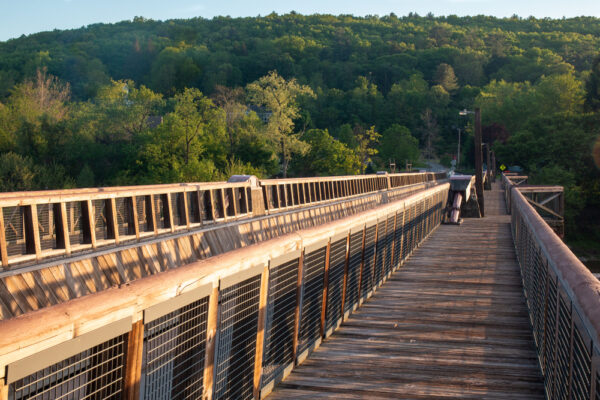
While Roebling was originally from present-day Germany, he immigrated to Pennsylvania in the 1830s. It was in the small community of Saxonburg that he developed his patented metal wires for use in suspension bridges. The Saxonburg Museum in western PA offers a wealth of information about his life and career.
Roebling’s Delaware Aqueduct is one of four he built over the Delaware River for the D&H Canal, but it’s the only one that’s still standing.
Roebling’s aqueducts replaced dammed sections of the river that canal boats, loaded primarily with coal and lumber, would cross to connect between the canal’s two sections. However, it was determined that in order to compete with the emerging railroad industry, aqueducts would prove to be better.
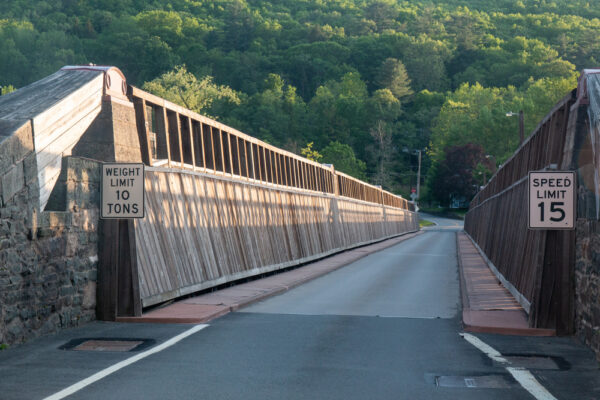
This was true until 1898 when this portion of the canal was closed and the aqueduct was drained of water. The bridge was then converted to be used by cars and carriages. It was operated as a toll bridge until 1979.
Over the years, much of the bridge’s canal structure had been removed. However, parts of the suspension bridge’s structure were left and historic photos make it very obvious that it is designed in this style.
In 1980, the bridge was purchased by the National Park Service in order to preserve it. The aqueduct’s sides, towpath, and ice-breaking supports were rebuilt using Roebling’s original plans.
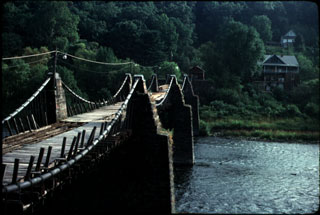
Today, the bridge no longer carries water but does offer one lane for cars to cross the river between Lackawaxen in the Poconos of Pennsylvania, and Minisink Ford in New York’s Catskill Mountains.
Cars pass through the high-walled sides of the old canal while pedestrians can walk along the towpath on either side of the bridge.
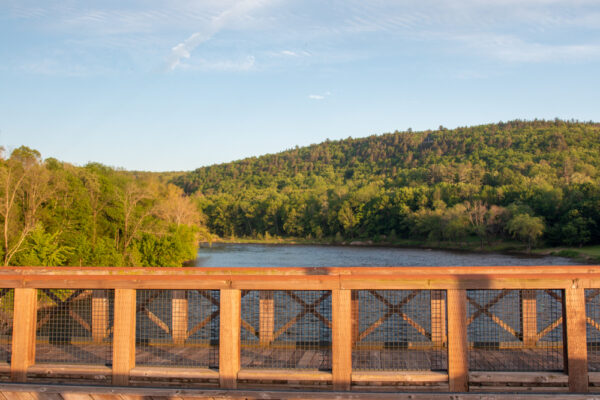
While walking along the bridge, there are not only incredible views of this scenic portion of the Delaware River and the remains of the canal, but there is also the chance to learn more about the history of this bridge. Because of this, I’d definitely recommend parking your car (there are small lots on both the Pennsylvania side and the New York side) and walking across the river.
On both ends of the bridge, there is signage that offers information about the history and the importance of this historic bridge. I especially enjoyed the graphics that gave a cutaway view of the bridge and showed how it was constructed.
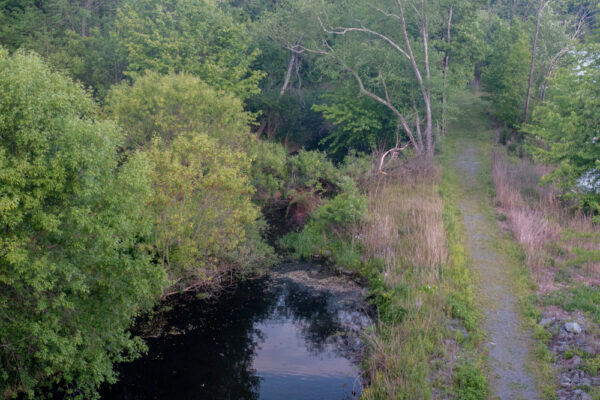
While walking on the northern side of the bridge, also take a minute to peer down at the bridge’s supports in the river.
They have been designed in a “V” shape. This helps to break up the ice flowing around the bridge and keep it more structurally stable.
Also interesting are the sections of the bridge where the suspension structure can be seen. The wire here is actually the original cable spun by John Roebling in the 1840s, which really adds to the historical interest here.
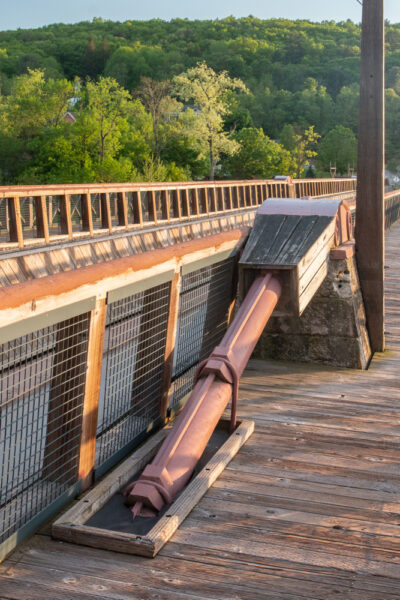
While at the site, don’t miss the historic toll keeper’s house on the New York side of the bridge. While this house was built after the canal was closed, it is still an interesting part of the site’s history. Inside, you’ll find a small museum with a few historical artifacts and more information on the area.
Roebling’s Delaware Aqueduct is located in a fairly isolated area of both New York and Pennsylvania, so it’s unlikely that you would find yourself close to this spot (unless you are exploring Revolutionary War history at the nearby Minisink Battleground Park in New York or the Zane Grey Museum in PA).
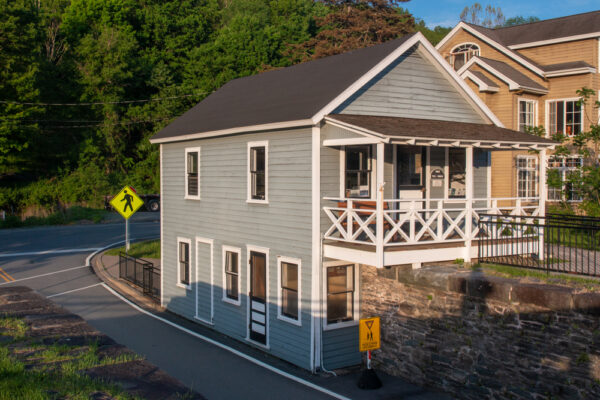
However, if you love history and old bridges, this is quite an interesting and beautiful spot that’s worth checking out.
How to Get to Roebling’s Delaware Aqueduct
Roebling’s Delaware Aqueduct spans the Delaware River between Sullivan County, New York and Pike County, Pennsylvania.
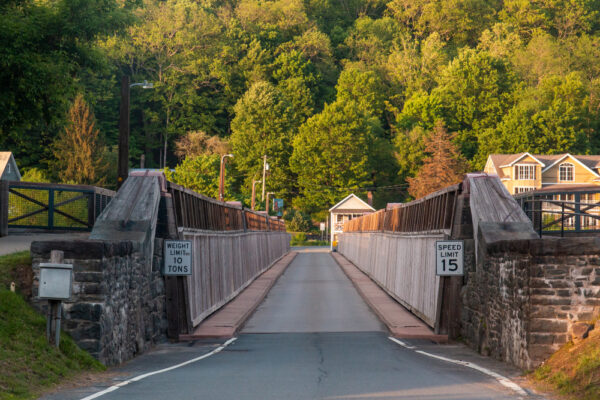
Parking is available next to the bridge on both sides of the river.
In Pennsylvania, parking can be found at the following coordinates: 41.481821, -74.986035.
In New York, the parking lot can be found here: 41.483695, -74.983828.
Looking for more places to visit nearby? Check out the Shuman Point Natural Area, Shohola Falls, and the National Canal Museum.
[Click here for information on how to use the coordinates in this article to find your destination.]
This article was originally published on my other site, UncoveringNewYork.com.

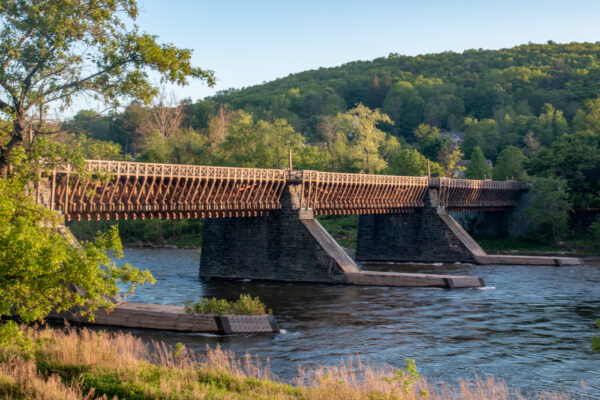
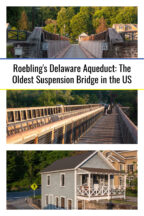
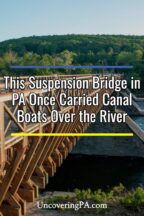
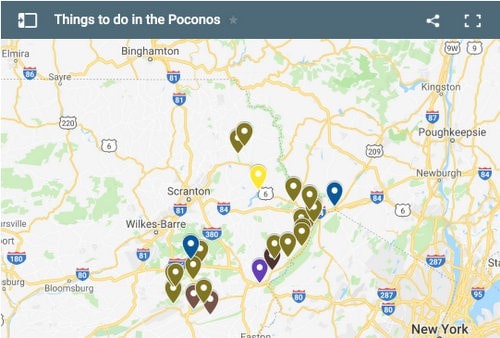 "
"

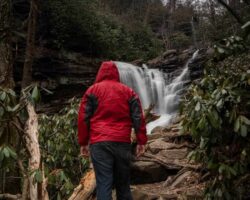
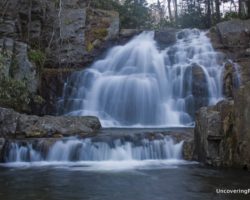

I’m sorry the prices for bushkill went up so much. But it is worth it with falls and hiking trails in the fall air. Great!